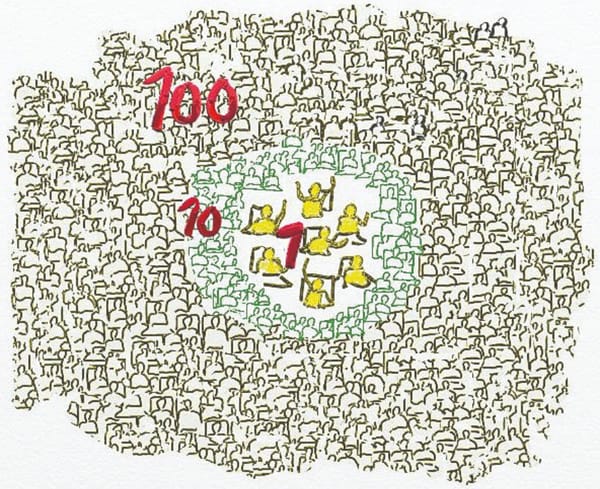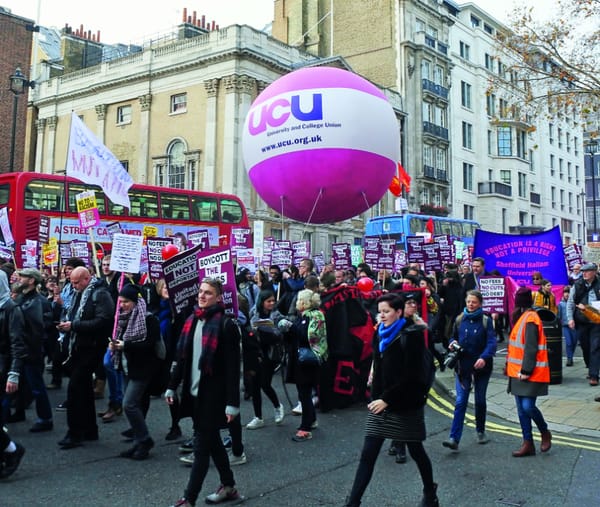The state of the Union: to consult or not to consult…
The Union has a history of making changes without properly consulting with students. If it is supposed to represent us, it needs to change.

Three weeks ago, a motion to create a liberation officer to represent economically disadvantaged students was shot down at Union Council with a 50/50 vote. The Deputy President (Welfare) spoke out vociferously against the idea, arguing that “it was setting up a role to fail” and “the relevant students haven’t been consulted”. It was this last point that I found ironic coming from a senior Union official. Time and time again, those in power at the Union have shown that they prefer to act first and worry about students’ concerns later.
This is exemplified most strongly by a report from the DPW to the Trustee Board (the Union’s most senior committee), regarding the Wellbeing Representation Network (WBRN). The report states: “there was not enough time to consult effectively with College staff and students” and “Officer Trustees were assigned to lead consultation between February and June, which failed because of a lack of clarity of the network’s purpose”.
The WBRN idea was first announced in January 2017, yet the Union felt it was appropriate to rush through the biggest expansion of the rep network in recent years, aiming for implementation in October. No College staff were consulted ahead of planning for development, and the 17 students who were consulted in dedicated sessions were all existing elected volunteers, meaning no normal students or College staff had the opportunity to voice their concerns before the WBRN was set in motion. Mental health and wellbeing are incredibly sensitive issues that should be handled with delicate and careful planning, yet the Union rushed this idea to meet a deadline, akin to bulls in a china shop.
Departmental staff were not satisfied with this either. The report said “some departments made requests for changes to the Network that were not possible due to the timing and progress of implementation”, showing that at least someone in the Union understood the issues associated with rushing through such a big change. However, when students raised their concerns about the network with departmental staff, they were met with antagonism: “students that opposed the implementation of the Network met with departments before the Union, which led to biases and uncertainty from departmental staff and discredited the work that had been completed”. It is shameful that the Union could not be bothered to reach staff before students took the initiative – shouldn’t this have been done before the idea was even announced? Not one of these people thought to delay the implementation until consultation was thoroughly complete, and all concerns addressed.
“I hope next year’s sabbs realise the importance of student voice and input”
The report is a damning indictment of the Union – it shows that concerns were ignored due to the rushed implementation, that concerned students were dismissed, and that the Union did not address the requests of staff. Most importantly, it showed that the Union does not care about consulting the students it claims to represent. It appears that, to the minds of the senior Union officials, consultation is a task to be given to student volunteers who propose ideas that they are not in favour of. It isn’t something that they themselves feel the need to do. This isn’t just a one-off issue. Student consultation is something that the Union has failed to do time and time again. Most recently, the timetable for the Leadership Elections was altered, with the usual week’s campaigning period being removed. Governance Committee minutes reveal that this was an idea suggested by the Union President, in order to decrease the stress on candidates, but ended up being implemented without any formal input from student volunteers outside Trustee Board. While the President had good intentions when suggesting the idea, the new timetable means that voters have no opportunity to find out who is running and what platform each candidate is running on. The Union encourages people to vote as soon as voting opens, which coincides with the start of campaigning, giving an inherent advantage to those who are well known on campus. Just imagine if you were running for a position against an existing sabbatical officer… With this new election timetable, you would be decimated simply because you weren’t given the chance to get your name out. This is yet another drastic change the Union have made where students were not consulted.
Although I have been critical of the Union in this article, that’s not to say that the Union hasn’t consulted students at all. Last year, the end of zero-tolerance deadlines and the smoking ban were achieved by consulting students through online polls. But consultation needs to be done on all the big changesmade and stances taken by the Union – after all, the sole purpose for its existence is to represent students. The DPW has given the green light for consultation regarding the Social Mobility Officer, and the Union President is working with myself to look into a petitions system on the Union website. These are welcome developments that show a positive attitude to student engagement; I hope that next year’s sabbatical officers take note and realise the importance of student voice and input.








